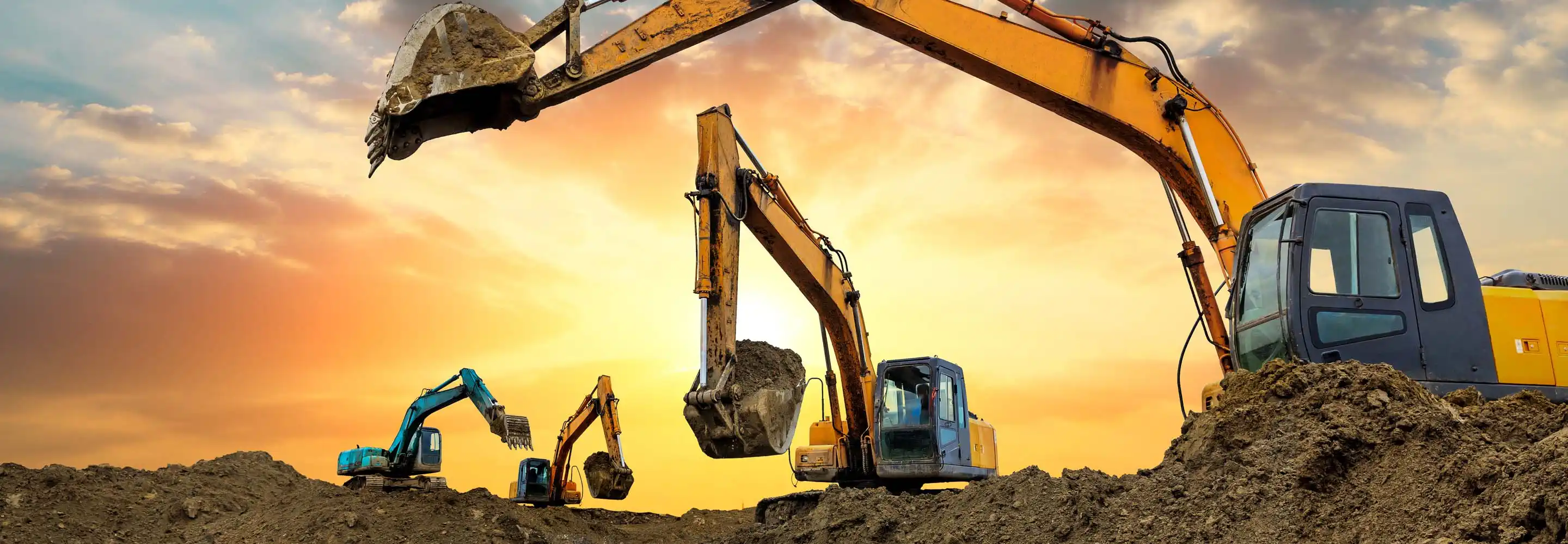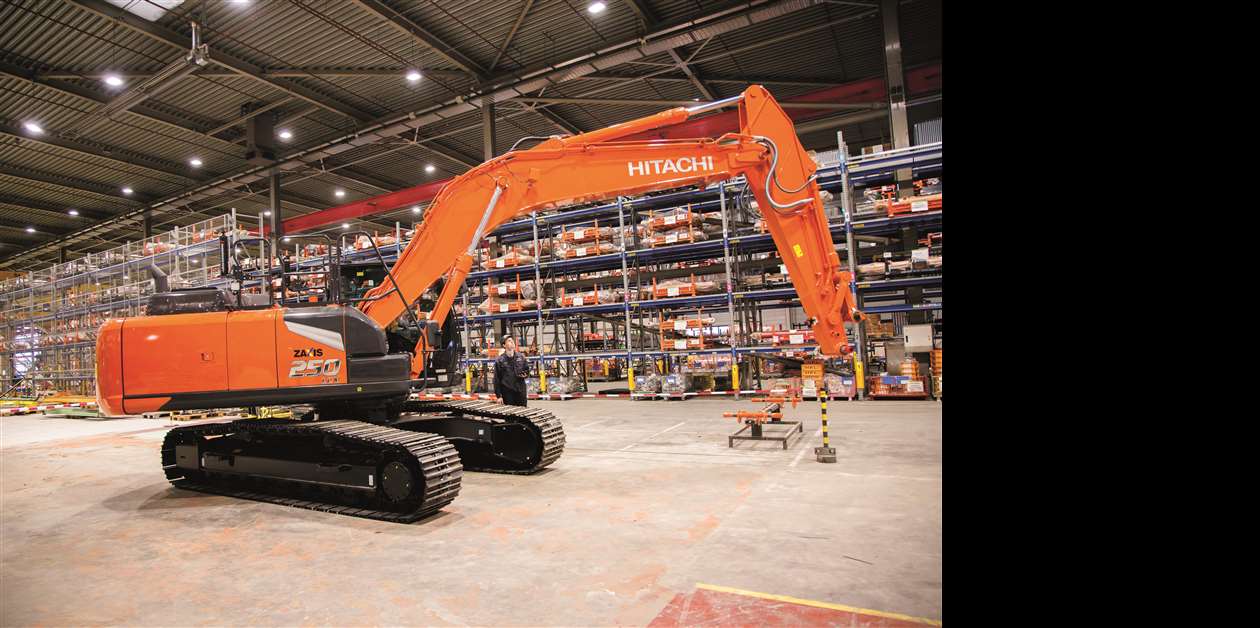Scissor Lift Rental in Tuscaloosa AL: Safe and Reliable Raising Solutions
Scissor Lift Rental in Tuscaloosa AL: Safe and Reliable Raising Solutions
Blog Article
Discovering the Financial Benefits of Renting Construction Equipment Compared to Owning It Long-Term
The choice in between leasing and having building equipment is critical for monetary administration in the market. Renting out offers immediate price savings and functional adaptability, permitting firms to allocate resources extra effectively. In contrast, possession comes with substantial long-lasting monetary dedications, including upkeep and devaluation. As service providers consider these choices, the effect on capital, job timelines, and modern technology accessibility becomes increasingly substantial. Recognizing these subtleties is vital, specifically when thinking about just how they line up with certain project requirements and financial strategies. What elements should be focused on to make certain optimal decision-making in this complicated landscape?

Expense Contrast: Renting Out Vs. Having
When reviewing the financial effects of owning versus leasing building tools, a detailed expense comparison is important for making notified decisions. The choice between leasing and owning can considerably affect a business's lower line, and comprehending the connected prices is essential.
Leasing building and construction tools generally entails reduced ahead of time prices, enabling companies to designate resources to various other functional demands. Rental expenses can gather over time, potentially surpassing the expenditure of possession if equipment is needed for a prolonged period.
Conversely, possessing building tools calls for a substantial first financial investment, in addition to continuous prices such as financing, depreciation, and insurance coverage. While possession can lead to long-lasting savings, it additionally connects up funding and might not supply the exact same level of adaptability as leasing. In addition, having tools necessitates a commitment to its utilization, which might not constantly straighten with job demands.
Eventually, the choice to rent or own needs to be based upon a detailed evaluation of specific task requirements, financial capacity, and lasting calculated objectives.

Maintenance Expenditures and Obligations
The choice in between renting out and having construction tools not only involves economic factors to consider yet additionally includes recurring upkeep expenses and obligations. Having devices needs a considerable commitment to its upkeep, that includes regular assessments, repair work, and prospective upgrades. These duties can rapidly gather, bring about unanticipated prices that can stress a budget plan.
On the other hand, when leasing tools, maintenance is typically the responsibility of the rental company. This setup enables specialists to prevent the economic worry connected with deterioration, along with the logistical difficulties of scheduling repairs. Rental agreements commonly consist of arrangements for upkeep, meaning that service providers can concentrate on completing jobs as opposed to fretting regarding tools condition.
Additionally, the varied series of equipment readily available for lease makes it possible for firms to choose the newest versions with advanced technology, which can enhance effectiveness and performance - scissor lift rental in Tuscaloosa Al. By choosing services, businesses can prevent the lasting responsibility of devices devaluation and the connected upkeep frustrations. Inevitably, assessing maintenance costs and duties is essential for making an educated decision about whether to rent out or possess building and construction equipment, substantially influencing total job expenses and functional efficiency

Depreciation Effect On Possession

A substantial aspect to take into consideration in the choice to own building tools is the effect of depreciation on total possession expenses. Devaluation stands for the decrease in worth of the tools gradually, affected by variables such as use, wear and tear, and advancements in technology. As equipment ages, its market price lessens, which can dramatically impact the owner's monetary placement when it comes time to sell or trade the equipment.
For building companies, this devaluation can equate to significant losses if the tools is not used to its fullest capacity or if it comes to be obsolete. Owners must represent devaluation in their economic projections, which can lead to greater general costs contrasted to renting. Furthermore, the tax implications of devaluation can be intricate; while it might offer some tax obligation advantages, these are typically balanced out by the fact of minimized resale worth.
Eventually, the concern of depreciation emphasizes the relevance of understanding the long-lasting financial dedication entailed in possessing building and construction equipment. Business must thoroughly assess how usually they will certainly utilize the tools and the possible financial influence of depreciation to make an educated decision about ownership versus leasing.
Financial Versatility of Leasing
Leasing building tools uses substantial economic flexibility, permitting companies to designate resources more efficiently. This adaptability is specifically critical in an industry identified by rising and fall task needs and differing work. By deciding to lease, organizations can avoid the considerable capital expense required for acquiring equipment, protecting capital for various other operational demands.
Furthermore, renting devices makes it possible for firms to customize their equipment selections to specific job More Info demands without the long-term dedication connected with ownership. This suggests that businesses can conveniently scale their devices supply up or down based upon current and awaited task demands. As a result, this flexibility lowers the danger of over-investment in equipment that may become underutilized or out-of-date with time.
Another economic advantage of renting is the capacity for tax advantages. Rental settlements are often considered operating budget, enabling for instant tax obligation reductions, unlike devaluation on owned and operated equipment, which is topped numerous years. scissor lift rental in Tuscaloosa Al. This prompt expenditure recognition can even more boost a business's money setting
Long-Term Job Factors To Consider
When reviewing the long-term demands of a construction business, the choice in between leasing and owning tools comes to be a lot more complicated. Key elements to take into consideration consist of job period, frequency of use, and the nature of upcoming tasks. For jobs with extended timelines, acquiring devices may appear beneficial due to the capacity for reduced general expenses. However, if the devices will not be utilized regularly across projects, owning might cause underutilization and unnecessary expenditure on insurance, storage, and upkeep.
Additionally, technological innovations position a substantial factor to consider. The building and construction market is evolving swiftly, with new devices offering improved effectiveness and safety features. Renting allows firms to access the current modern technology without committing to the high in advance prices related to purchasing. This versatility is specifically useful for organizations that handle diverse jobs needing different sorts of equipment.
In addition, monetary stability plays a vital duty. Possessing tools frequently involves significant resources financial investment and check that devaluation concerns, while renting permits even more foreseeable budgeting and capital. Ultimately, the selection between owning and renting ought to be straightened with the strategic purposes of the official site building service, thinking about both existing and expected job needs.
Verdict
In conclusion, leasing building tools uses significant monetary benefits over long-term ownership. Eventually, the decision to rent rather than very own aligns with the dynamic nature of building and construction projects, allowing for versatility and accessibility to the most current equipment without the financial problems associated with ownership.
As tools ages, its market worth lessens, which can substantially affect the owner's financial position when it comes time to trade the devices or market.
Leasing building and construction equipment provides substantial monetary versatility, enabling firms to allot resources much more effectively.In addition, leasing devices allows firms to tailor their tools selections to specific project needs without the long-term commitment associated with possession.In verdict, leasing construction devices offers considerable monetary benefits over long-lasting possession. Inevitably, the choice to rent instead than very own aligns with the dynamic nature of building projects, allowing for flexibility and accessibility to the most current equipment without the economic worries connected with possession.
Report this page